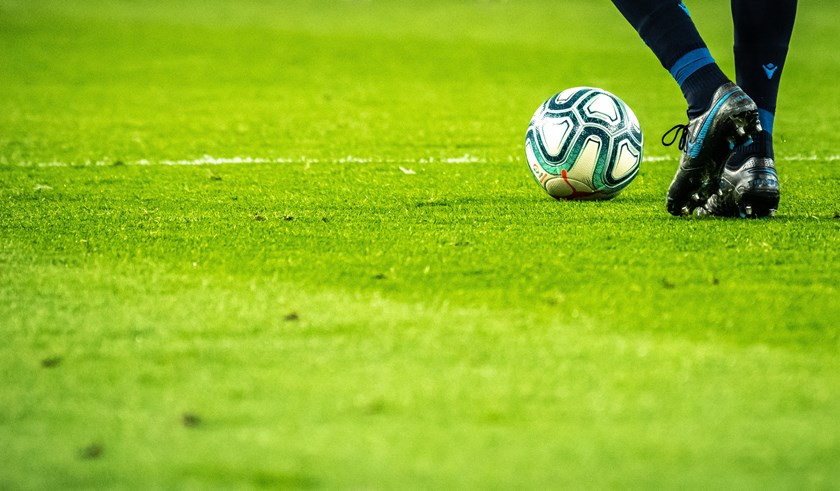Inn the Field of Play – October 2017: Esports – a Future for Sport?
News

What do a Major League baseball team and a team of video gamers have in common? A few years ago, the answer would not have been obvious. But in an increasingly common development for a sports club, the New York Yankees have become the latest to enter the world of esports. Taking to Twitter, the Yankees announced a major investment in Vision Esports, the largest single shareholder in Echo Fox, Twin Galaxies and Vision Entertainment, three esports companies. Of the trio, Echo Fox fields professional teams in a number of games, including League of Legends and Counter Strike: Global Offensive.
For the uninitiated, "esports" is the term given to competitive playing of video games for cash and prizes. Leagues range from the relatively low-key amateur online leagues, to organised international leagues involving professional teams, millions of viewers and prize money in the millions of pounds. Indeed the 2016 League of Legends World Championship finals, which were held at the 21,000-seater Staples Centre in Los Angeles, saw a peak concurrent viewership of 14.7 million. 43 million people tuned into the Championship over the 15 days of competition according to ESPN. The total prize money for that event was over £5.1 million ($6.7 million). To put those viewer numbers into context, more people watched the 2016 League of Legends finals than either the 6.4 million who watched the Wimbledon men's singles finals or the 11 million who tuned into the Golf Masters final in 2017. Esports are here to stay.
In contrast to traditional sports, esports allows players and fans alike to enter fantastical digital worlds. These worlds are the products of the imaginations of developers and publishers, allowing creativity in game format and ultimately producing a variety of games quite different from the most popular traditional sports. Whilst in the physical world, football, rugby and golf are widely played and professional matches attract a large number of viewers, in the digital world, combat and fighting games are very popular, not least League of Legends and Counter Strike: Global Offensive. In what is a rapidly growing industry, there are opportunities for video games featuring traditional sports.
Such an opportunity has been seized effectively by FIFA, in the football gaming space. Notably FIFA's partnership with Electronic Arts has produced the hugely popular FIFA video game series and is one of the most successful examples of a traditional sports organisation dominating part of the esports world. EA Sports released its first FIFA-branded videogame in 1993, and the current licence agreement is due to run until 2022. The popularity of the FIFA game speaks for itself; according to EA Sports, 65 million FIFA games are played weekly. Not only does this licensing agreement drive significant revenue for FIFA, but the esports platform allows the brand to increase its fan base to include traditional football viewers and esports players alike. Such a boost in brand recognition is of benefit to sports organisations of all sizes.
At the smaller end of the scale, non-league side Runcorn Linnets FC recently hosted a fan who had travelled from China to visit the club. The fan had gained an interest in the club through managing the side on the Championship Manager game. Although sports clubs would not be able to expect all such fans to make a similar pilgrimage, there is undoubtedly an opportunity for clubs to reach fans through video games as well as through traditional channels.
Licence agreements between sports organisations and esports providers should be considered carefully, with the sports organisation taking a view on its desired level of involvement. The benefit of licensing is that it allows sports organisations to enter the esports space with minimal investment; the esports provider would generally be responsible for development of the product, its marketing and distribution. Equally, the sports organisation will need to ensure its trademark is protected and the esports publisher will use it in a manner consistent with the organisation's brand.
Rather than provide licences to use their brand to esports publishers, some sports clubs are bringing esports in house. A recent trend has involved football clubs signing professional esports players, for instance Manchester City's recruitment of Kieran 'Kez' Brown in July last year. Kez Brown plays the FIFA game for the club, involving competing in esports tournaments as well as live-streaming his gaming on the esports broadcasting website Twitch, and making videos for the club's YouTube channel. Similarly, West Ham United signed professional FIFA player Sean Allen in May last year, although he has now left the club and joined professional esports team Lightning Pandas to build their presence in the FIFA gaming space.
Some sports organisations, like the Yankees, have gone further than acquiring the odd esports player by investing in entire esports teams, moving their organisations into the esports space. FC Copenhagen joined forces with Nordic entertainment company Nordisk Film earlier this year to create North, an esports team featuring Counter Strike pros. Last year the Philadelphia 76ers acquired esports organisation Dignitas in a deal rumoured to be worth several millions of dollars. Dignitas has teams in a number of video game leagues, including Counter Strike, League of Legends, Overwatch, Heroes of the Storm and Smite. However the focus for the clubs in such deals has not been to create their own teams, carrying the clubs' branding. This opportunity is still to be exploited. With sports club investment, these esports teams are able to generate revenue as other sports teams do, including through prize money and sponsorship deals. Esports teams can have a substantial fan base and star players, which further attracts investment by sports clubs. These star players are the new Beckhams and Rooneys for a growing number of millennial fans. Indeed it is not fanciful to anticipate the introduction of transfer fees in the not too distant future.
But are they athletes? Undoubtedly esports professionals train for many hours per day and spend time focusing on game strategy. A difference from traditional sports professionals comes in the level of activity of the players. The stereotypical esports player, spending hours in front of a screen, is unlikely to be an advertisement for a healthy lifestyle. It was in that stereotype that New Zealand rugby team Warriors saw an opportunity, in another example of a sports club seeking a way into the esports world. Last year six Warriors players coached esports teams competing in the Infinite Warfare Premiership, a six week esports tournament held in Auckland. The rugby players brought skills they had developed on the pitch to esports, teaching the gamers fitness and nutrition, teamwork, and how to develop a winning mind-set.
The world of esports is large, already very significant, developing rapidly and increasingly sophisticated as it deals with issues such as governance and integrity. Much remains to be seen about how sports clubs will continue to engage with this challenging context both in this jurisdiction and internationally. Within the UK there is scope for collaborations to be governed both by a particular sport's national governing body or that of esports itself, the British Esports Association, which was established last year. Taking a wider view, the International Esports Federation is working to standardise and regulate competitions, titles, referees and players at the global scale.
Esports is the fresh frontier. Its growth is exponential and traditional sports clubs and governing bodies can view this disruptor as an opportunity to grow interest in their own club or sport. As much as it may be anathema to those that consider sport to require some physical input, esports provide the opportunity for additional revenue channels and to attract future participants in the real sport in sectors of society that may have been difficult to reach previously. It is in sports' own interests to take the lead in the sector and not be playing catch-up in five to ten years' time.
If you require further information on anything covered in this briefing please contact Sally Mantell or your usual contact at the firm on 020 3375 7000. Further information can also be found on the Sports Organisations page on our website.
This publication is a general summary of the law. It should not replace legal advice tailored to your specific circumstances.
© Farrer & Co LLP, October 2017







